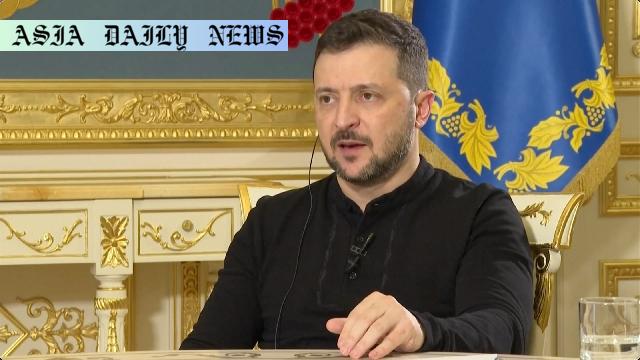Kursk operations continue: Ukrainian forces maintain active defense in Kursk and Belgorod regions, challenging Russia’s claims.

Ukrainian Forces Continue Operations in Kursk Despite Russian Claims
The ongoing conflict between Ukraine and Russia continues to escalate, with the Kursk region becoming a focal point of military and political developments. On Sunday, Ukrainian President Volodymyr Zelenskyy stated that Ukrainian forces are actively conducting operations in the western Russian region of Kursk, directly challenging claims made by Moscow regarding the cessation of hostilities in the area. Moscow had earlier asserted through Valery Gerasimov, chief of the Russian armed forces’ general staff, that the last settlement in Kursk had been “liberated” from Ukrainian units. Yet, Ukrainian reports contradict this assertion, bringing global attention to the contested narratives emerging from the battlefield.
Ukraine’s Call to Action and the International Angle
In a social media message, President Zelenskyy emphasized the need for heightened international pressure on Russia to halt its aggression. He further noted that the current level of global pressure remains insufficient in stopping the conflict or bringing about peace. In his remarks, Zelenskyy connected the frontline conditions and Russian military activities as evidence that international sanctions and diplomatic efforts require amplification.
These developments follow intense scrutiny over how effectively the international community is addressing Russia’s actions in Ukraine. Recent reports from the Ukrainian military indicate resilience on their part, outlining specific areas within the Kursk region where they have successfully blocked Russian attacks. The map provided as part of the military’s update showcases locations that remain highly contested. These types of visual and documented reports add complexity to an already multifaceted conflict that has left political leaders worldwide scrambling for effective strategies.
US Position on the Conflict
The United States, a key player in international efforts concerning Ukraine, has taken center stage in shaping potential resolutions. US Secretary of State Marco Rubio appeared on a national television program on Sunday, hinting at the significance of the upcoming week for determining Washington’s role in the conflict moving forward. While advocating for peace talks, Rubio refrained from endorsing new sanctions against Russia at this time, suggesting that the timing and execution of such actions require careful deliberation. His remarks indicate a cautious but strategic approach by Washington, which continues to watch the developments in Kursk as a potential flashpoint for broader implications in the war.
The Broader Implications of Kursk Operations
The situation in Kursk reflects ongoing volatility that has transformed the region into a microcosm of the larger war. Military operations here are not isolated incidents but part of Ukraine’s larger strategy to reclaim control and, simultaneously, a demonstration of how Moscow’s narrative of the conflict is contested by ground realities. The messages sent by Ukrainian leadership, including the plea for increased international involvement, highlight the urgency of acting decisively before more unnecessary suffering unfolds.
While the immediate focus remains on resolutions within Kursk, the ongoing dialogue about sanctions, international coordination, and military strategies will have lasting effects within Ukraine and beyond. As Kursk remains in flux, the broader dimensions of this war—the humanitarian toll, economic disruptions, and geopolitical repercussions—underscore the dire need for coordinated and impactful responses from the international community.
Commentary
The High Stakes of Continued Fighting in Kursk
The situation in the Kursk region casts a glaring light on the complexity and emotional toll of the conflict between Ukraine and Russia. Ukraine’s decision to maintain active operations in the contested region challenges not only Moscow’s claims but also the perception of the global community regarding the nature of this war. A decisive moment, this conflict underscores the struggles of a nation defending itself against a vastly more powerful adversary, all while striving to garner stronger international support.
The Balancing Act of International Involvement
President Zelenskyy’s calls for increased global pressure reflect the inherent challenges of keeping international attention and resources aligned with Ukraine’s goals. While various nations, including the United States, have taken steps to support Ukraine militarily and economically, it is clear that more must be done to bring about a sustainable resolution. The reluctance of some international actors to impose further sanctions or shift their diplomatic stance complicates an already volatile situation.
US Secretary Marco Rubio’s remarks about the critical nature of peace talks indicate the fine line that world leaders must navigate: offering support to Ukraine without escalating the conflict to a broader, more dangerous confrontation. Rubio’s statements about sanctions also highlight the need for measured, impactful responses rather than symbolic gestures that may fail to achieve meaningful change.
Kursk—A Proxy for Broader Challenges
The developments in Kursk are emblematic of the larger challenges confronting both Ukraine and the broader international community. At its core, the conflict in Kursk is not simply territorial; it is a litmus test for global unity in opposing aggression, defending sovereignty, and upholding international law. In this context, operations in Kursk are a reminder that the stakes of this war transcend regional boundaries, demanding thoughtful and urgent action worldwide.
As these events continue to unfold, the need for an effective and equitable resolution becomes even more apparent. How the world responds to this moment will shape not only the conflict itself but the principles that guide international relations in the years to come.


